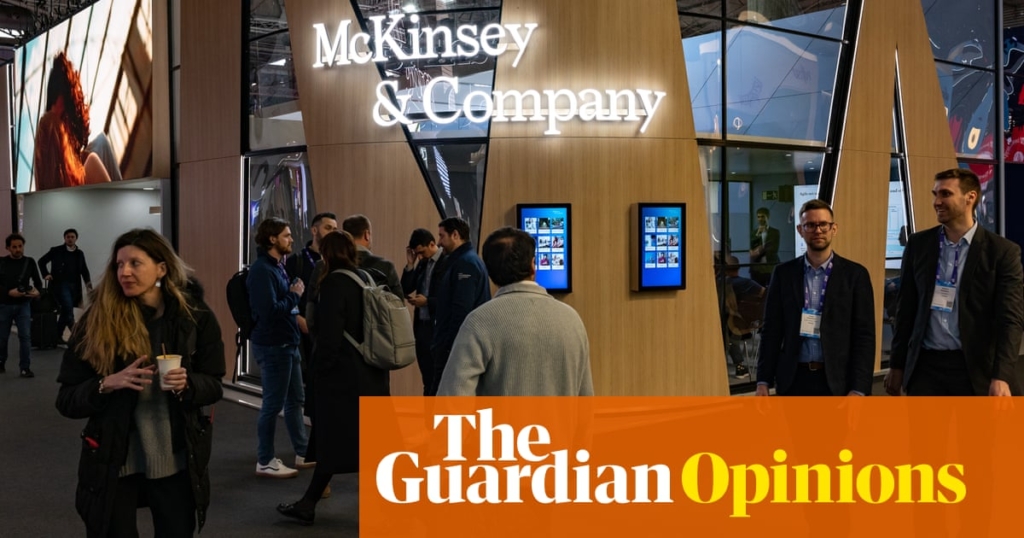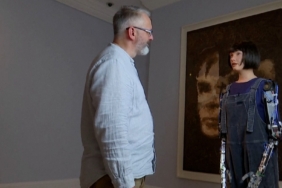In late 2005, I was in a Tokyo meeting room with some top GE executives. As the company’s corporate director of public relations at the time, I was helping sort through a corporate initiative we were planning to announce with some important Japanese customers. A few minutes later, a handful of people I’d never met came into the room. Most were not from Japan; all of them, I was told, were from McKinsey, perhaps the world’s most famous management consulting firm. Following the 15-minute meeting they had probably flown in from all over the world to attend, they left.
The firm McKinsey, of course, remains, dispensing advice to thousands of companies like GE and to governments and institutions in more than 65 countries. But as the company approaches a $600m settlement with the US government over its role helping opioid makers boost sales and drag out the painkiller epidemic, you might ask: why does McKinsey still get hired?
There are reasons why it shouldn’t.
In 2018, McKinsey agreed to repay $74m in fees to the government of South Africa after a judicial inquiry found evidence of contract abnormalities surrounding its work. This came soon after McKinsey was forced to pay back more than $66m for its work alongside a contract-looting partner who later fled the country. And just last week it was confirmed that the firm’s South African subsidiary will pay more than $122m “to resolve an investigation by the Justice Department into a scheme” to bribe South African government officials between 2012 and 2016.
Chasing a Mongolian railroads contract in 2010, McKinsey ignored a US state department corruption warning and signed an agreement with the government even as the government rainmaker who connected McKinsey to the contract signed his own contract with the same government entity. By 2015, Mongolian anti-corruption investigators were snooping and McKinsey was eventually barred from doing business there.
Since 2019, the firm’s bankruptcy advisory business has paid millions in fines, or relinquished fees, for “disclosure deficiencies”.
The firm can also give questionable advice.
Under former McKinsey partner Jeff Skilling, Enron paid the firm $10m a year, during which the firm endorsed Enron’s suspect accounting tactics that would ultimately torpedo the business. According to a McKinsey employee quoted in Duff McDonald’s book The Firm: The Story of McKinsey and Its Secret Influence on American Business, Enron “was a great business that just got out of hand”.
In April 2017, after three years studying the escalating inmate brawls and assaults by guards that endangered the viability of New York City’s Rikers Island jail complex, McKinsey sent a confidential final report to the city corrections commissioner. McKinsey had tested its new anti-violence strategy, the report said, and violence was down by more than half in the units where McKinsey had recommended new tactics.
What the report didn’t say was that jail officials and McKinsey consultants had fixed the game, moving inmates they believed were less violent into the units ahead of the period of study. The reality was the opposite of McKinsey’s report: violence actually rose by nearly 50% since the firm had been working at Rikers. The city government dumped McKinsey, but not before paying it more than $27m.
Then there’s the Department of Justice case, which found the firm’s invisible hand reached into virtually every opioid manufacturer and distributor. While McKinsey was advising the opioid manufacturers and distributors, the lawsuit noted, it was also advising the US Food and Drug Administration’s drug-approval department.
So why does McKinsey still get hired? Because it sells what business wants.
According to McDonald, in The Firm, McKinsey “certainly made the world a more efficient, rational and objective place than it might otherwise have been”. Eighty-five per cent of McKinsey’s work is repeat business, which would seem to show that the company provides useful counsel.
But McKinsey also shields weak leaders from accountability. After a preventable shop floor accident or before big layoffs – known as “efficiency consulting”, McDonald notes – a McKinsey report can shield a company from an angry plaintiff or its soon-to-be former workers. Its presence offers the plausible deniability that layoffs were just a business decision, one recommended by a respected, external party. In the Rikers Island case, McKinsey’s contract let city administrators say they had tried their best, since they had only requested proposals from consultants on a pre-approved list from the previous administration.
The durability of firms like McKinsey points to festering weakness in business’s upper reaches: today’s leaders either don’t have the skills to meet the accelerating world around them, can’t effect change within their own organizations, or are too afraid to make a mistake and fail.
But if they succeed? Well, that’s what was supposed to happen, just as what we heard in Tokyo was preordained.
I later asked a colleague from a GE business who also attended the Tokyo meeting what they had heard. Our own ideas, they replied: McKinsey had surveyed our own people and customers for ideas, then tried selling them as their own.
It’s unlikely that McKinsey will change. After all, the firm’s partners ousted former CEO Kevin Sneader not for being too weak on compliance failures, but for being too tough. “Mr Sneader’s letter to employees about the [opioid] settlement was blunt in criticizing the firm’s behavior,” the Wall Street Journal noted, and “[s]ome partners felt that language was too strong.”
Today’s business leaders should look within themselves and determine why they don’t trust their own people to make tough decisions. They need to find out why they are afraid to fail on their own terms. Making yourself accountable can be more painful than hiring a consultant to be accountable for you, but it’s likely to be more rewarding.
Nearly 20 years after that meeting in Tokyo, I am also a consultant. And while my small firm didn’t earn the record $16bn that McKinsey did last year, we also didn’t get kicked out of Mongolia.







Yorumlar kapalı.